Damariz Robles picks an orange from just above her head, chops it in half and squeezes. A startling volume of orange juice cascades from the fruit in her hand. She pulls the same trick with a vibrant red cacao pod, and everyone gathered around her takes turns breathing in the heavenly aroma wafting up from the white fruit inside.
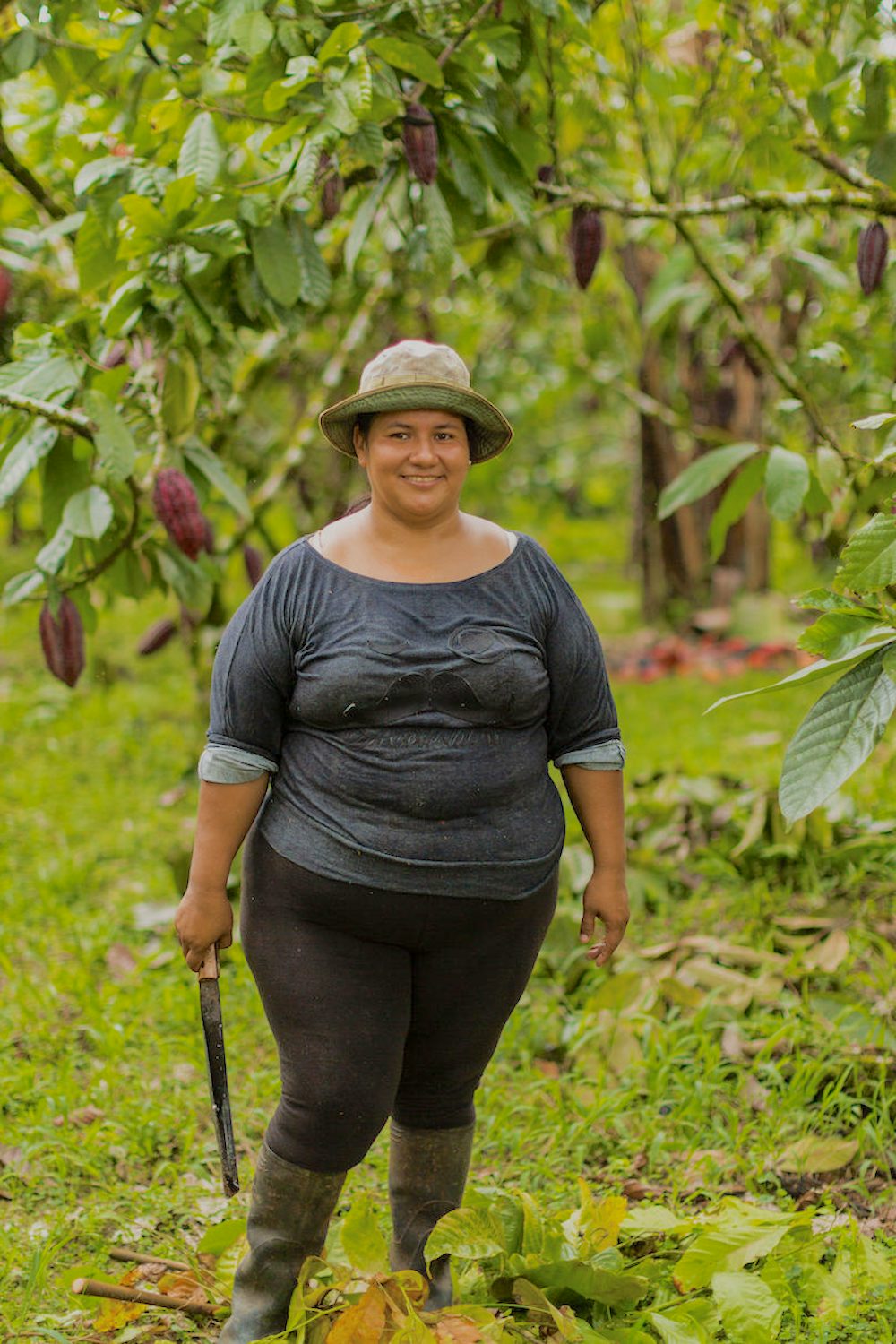
Robles, a Heifer project participant in Ecuador, credits her orchard’s abundance and quality to her dedication to innovation and a mindset of continual learning. Through a process of constant experimentation, Robles formulated her own arsenal of organic insecticides, pesticides and fertilizers that enable her to run her cacao orchard 100 percent organically, severing her dependence on traditional chemical products. One of her personal inventions, an all-natural fertilizer she refers to as BIOL (shorthand for biological fertilizer, as opposed to chemical), won an innovation contest held by Heifer Ecuador in honor of their 25th anniversary. The contest focused on small-scale farmer technology, and about 70 Heifer farmers participated. Robles received $600 for her win and used the money to purchase a motorized scythe to make tending her cacao orchard more efficient.
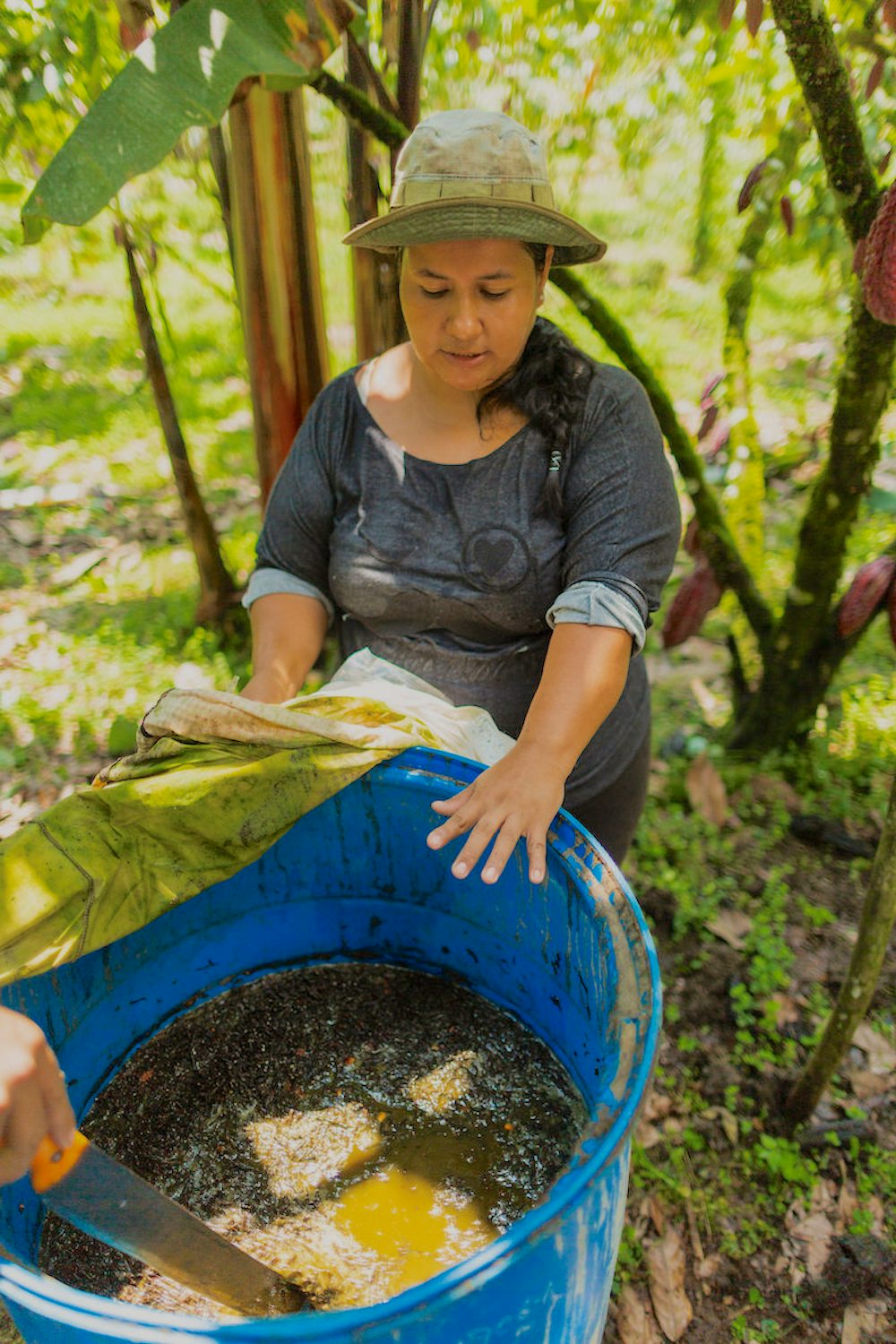
Robles has been running an organic operation for two years now, and she feels that the switch is good for her product and profits as well as beneficial to the environment and public health. First of all, it saves money. “We’re saving what we would be spending on chemicals. Chemicals are not cheap, and they harm people’s health as well,” Robles said. Even more importantly, the cacao is better than ever. “When we were using chemicals, we got small pods,” Robles said. “When we use organic, we get big pods, and the color is different.” Not only do her cacao trees produce bigger pods, the cacao itself is top-notch.
She uses her fertilizer on the other types of trees in the orchard as well, and it is to the organic fertilizer that she attributes her oranges’ super- juiciness and her grapefruits’ unusual sweetness. Keeping a diverse orchard is one of Robles’ secrets to growing her flavorful, aromatic cacao. “We also have orange, grapefruit, and that gives the cacao flavor,” she said. “If we cut down everything else, the cacao will have an uninteresting flavor.” The presence of the other fruit trees in the cacao orchard influences the flavor of the cacao that grows there, and therefore the chocolate that will eventually come of it. “This farm’s [chocolate] is sought out. People love it, because – smell that baby, it smells great. That’s why it’s so prized,” she said.
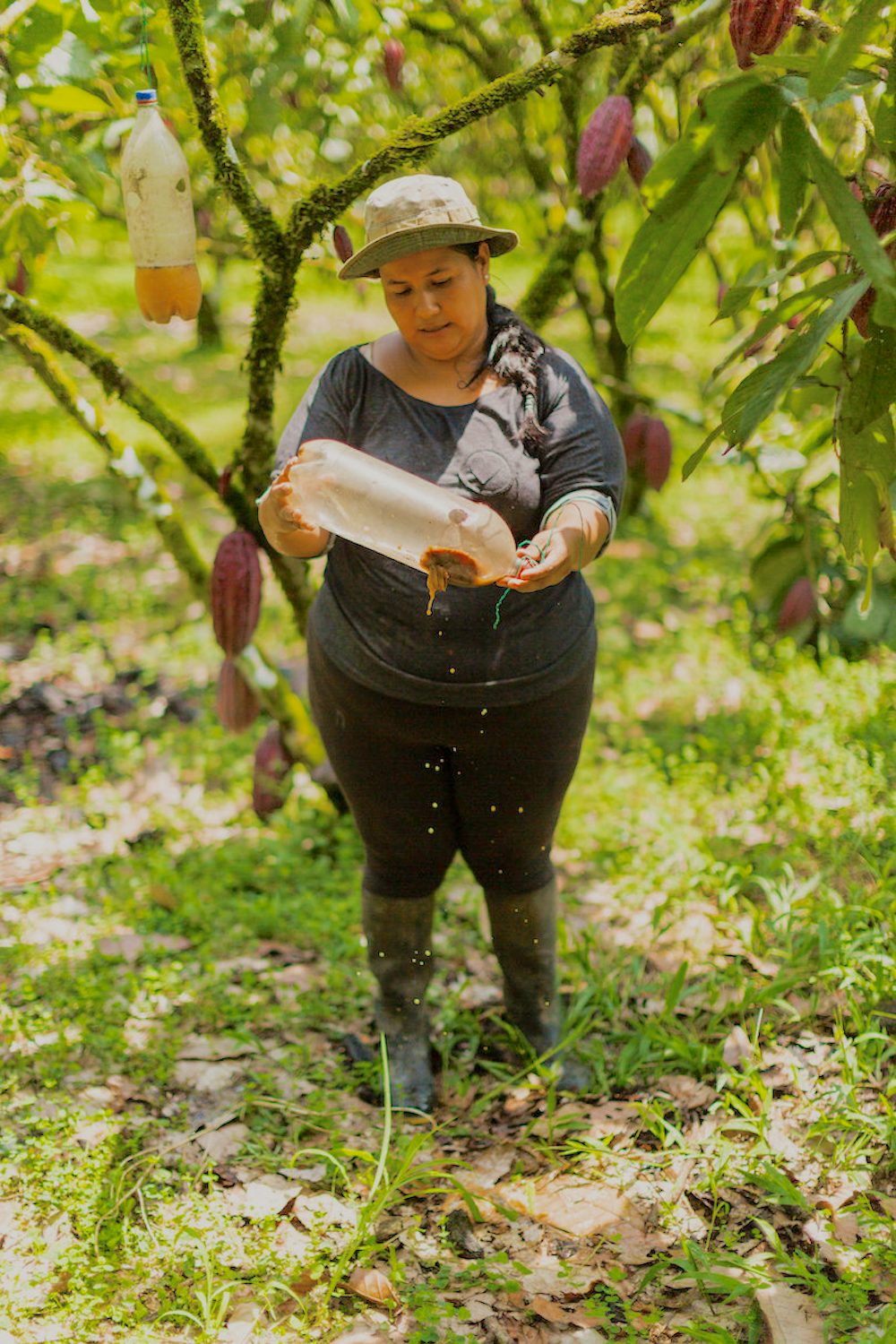
Her prize-winning fertilizer isn’t the only trick up Robles’ sleeve. She increased the volume of her harvest with another organic alternative. It is necessary to spray an herbicide around the bottoms of the trees to prevent other plants from choking the cacao plants, but when she used a traditional chemical herbicide, the pods at the bottom of the plant would die, too. Now that she uses her own organic formula, she is able to harvest an additional pound of cacao per tree. Multiplied by the hundreds of trees in her orchard, that’s a significant uptick in production and income.
“Chop and drop” is another way Robles fertilizes her orchard. When pruning cacao trees, either for better growth or culling pods that are sick with disease or fungus, rather than taking the organic “waste” material away, she simply leaves it on the ground where it falls — she chops it, and then lets it drop. The leaves, branches and pods break down and serve the same purpose as mulch — and it’s free, organic and efficient.
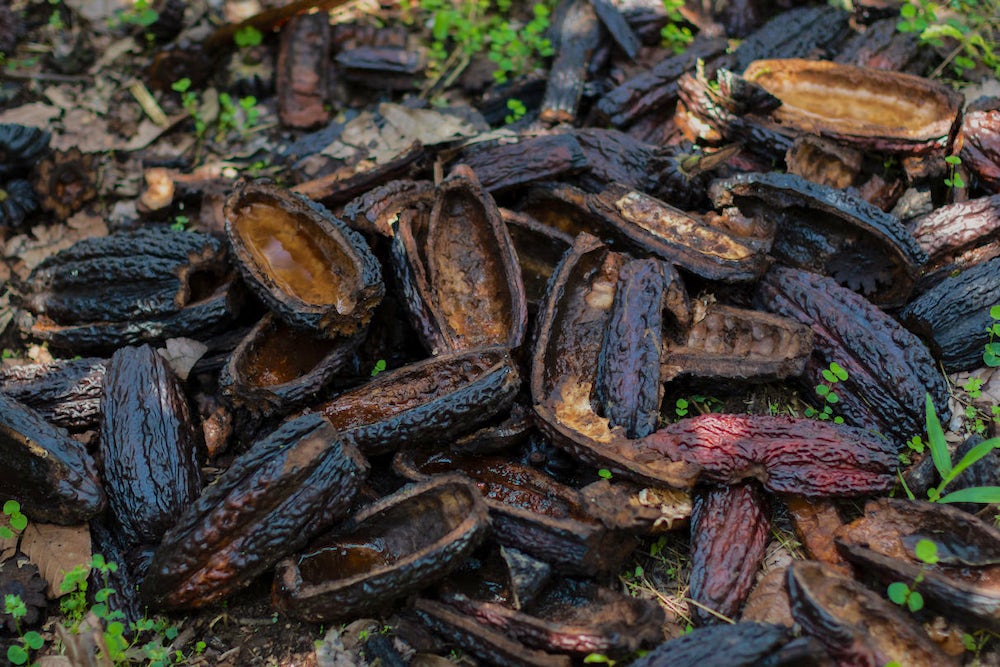
Pests are always a problem for farms, and dealing with them without industrial chemical solutions is a huge challenge. Robles has a trick for that, too. She created an organic bug trap. Insects are drawn inside a container filled with “pineapple rind, brown sugar and some little secrets I don’t just tell everybody,” Robles laughs. The insects can get in, but they can’t get out.
“I seduce the moths,” she said with a grin. “They fall in love, they come in, [and] it’s fermented so they get drunk and fall into the water.”
Robles works extraordinarily hard to make her organic orchard work. “I get up at 4 o’clock in the morning to make breakfast. I am the wife, the companion, the workmate. I am all those things. I have meetings ... the triple workday of women. We get up at 4 o’clock in the morning, and we keep going. We have to do like that to live in the countryside,” she said.
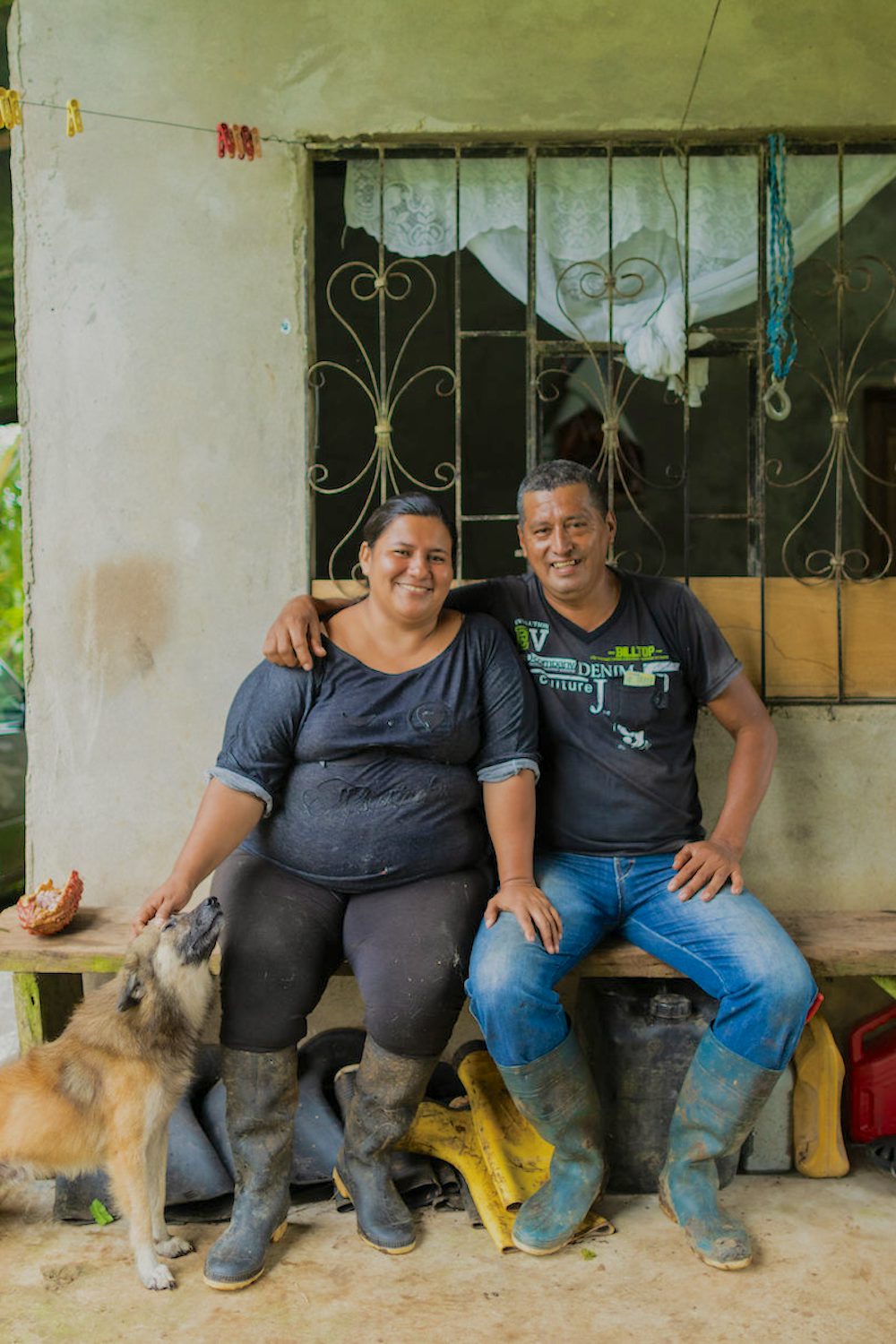
Robles is experimenting with new recipes all the time, and she uses material only from her farm. “We’ve done insecticide with garlic, with hot pepper. We tried step by step. We saw that we could make [it with] garlic and hot pepper. Then, we looked for barbasco — that they throw into the river to kill the fish — and then we looked for nettle because it’s also a good insecticide. So we innovate, we try something new, and we see what gives us the best results. And then we teach other people who can also keep the cacao organically. Because, what’s the point if we have money, but then death will follow us if no one else is pulling up their socks.”
Robles’ passion and curiosity is carrying her far, and she is teaching and learning new things all the time as part of Heifer’s women farmers’ co-op in her area. “You never finish learning,” she said. “There’s always something new to learn. Always. While you’re alive, you can’t say, ‘I know all about that.’ You say, ‘Can I listen and learn something new?’”